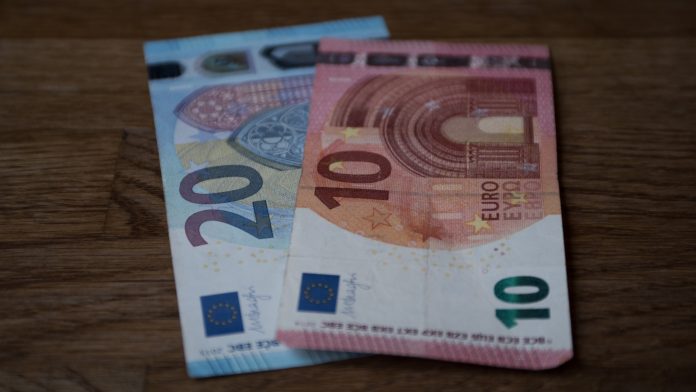- Pound (GBP) falls as shop inflation eases
- UK mortgage approvals falls
- Euro (EUR) rises despite weak German retail sales
- Eurozone GDP, CPI data is due
The Pound Euro (GBP/EUR) exchange rate is falling for a fourth straight day. The pair fell -0.06% yesterday, settling on Monday at €1.1461 and trading in a range between €1.1438 – €1.1487. At 08:35 UTC, GBP/EUR trades -0.16% at €1.1443.
The euro is pressing higher despite weaker-than-expected German retail sales and as investors look ahead to a series of data from the eurozone.
Retail sales in Germany unexpectedly fell in September, dropping 0.8% month on month after falling 1.2%. In August. Economists had forecast a rise of 0.5%. The data comes after GDP figures yesterday showed that the German economy contracted in the third quarter, with household consumption acting as a drag. The recent figures show that inflation has continued to eroded customers purchasing power and there are few signs that consumption will recover anytime soon.
Looking ahead, attention will now turn to eurozone economic growth figures, which are expected to show GDP stalled in the July to September period after rising 0.1% in Q2.
Inflation data will also be in focus, and consumer prices are expected to ease to 3.2% year on year in October, down from 4.3% in September. However, core inflation, which strips out more volatile items such as food and fuel, is expected to remain elevated at 4.2%, down from 4.5%. This is over two times the ECB’s target level and supports the view that the central bank needs to keep interest rates high for longer.
The pound is drifting lower amid a lack of fresh fundamental drivers. Figures yesterday showed that UK mortgage applications fell to the lowest level since January as the housing market fills the effect of the Bank of England’s successive interest rate hikes.
Meanwhile, figures say that price inflation is cooling. According to the British Retail Consortium, UK store inflation rose at the slowest pace a year in October.
Price shop price inflation eased to 5.2%, down from 6.2% in September. This was a level that was last seen in August 2022. Food inflation also slipped to six for six straight months to 8.8%, down from 9.9%.
These figures come ahead of the Bank of England interest rate decision on Thursday, where the central bank is widely expected to keep interest rates on hold.





